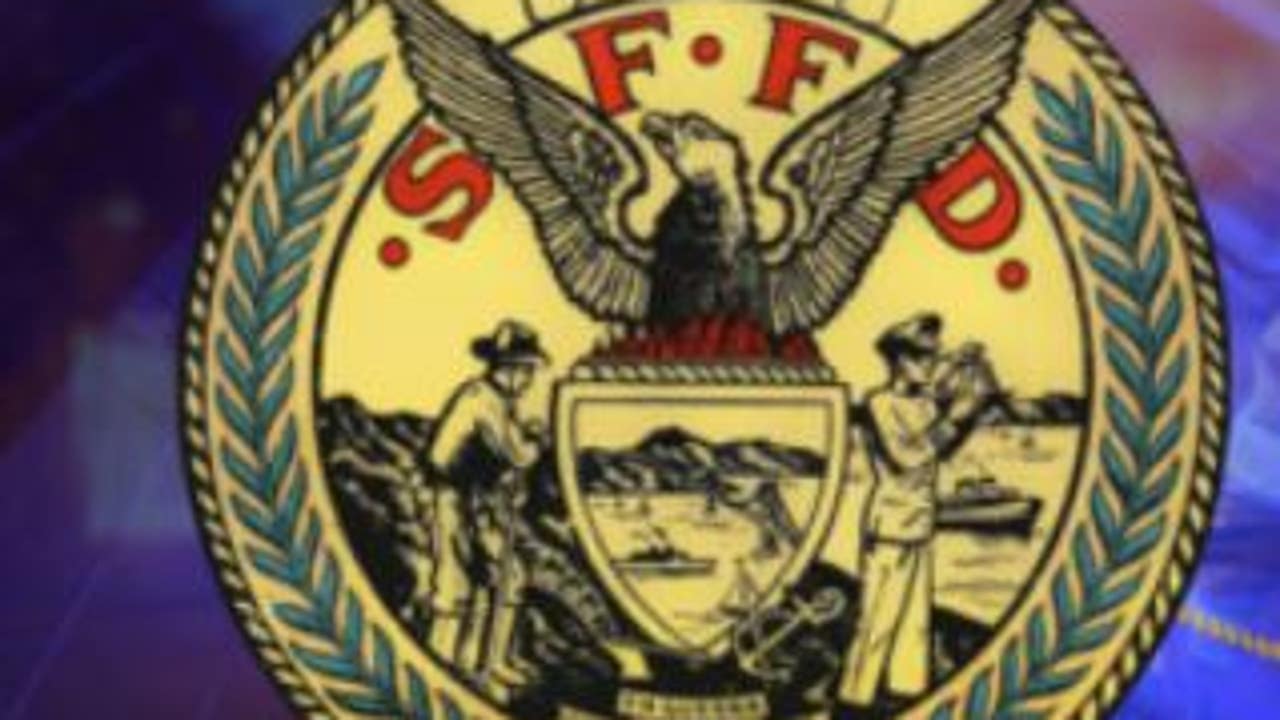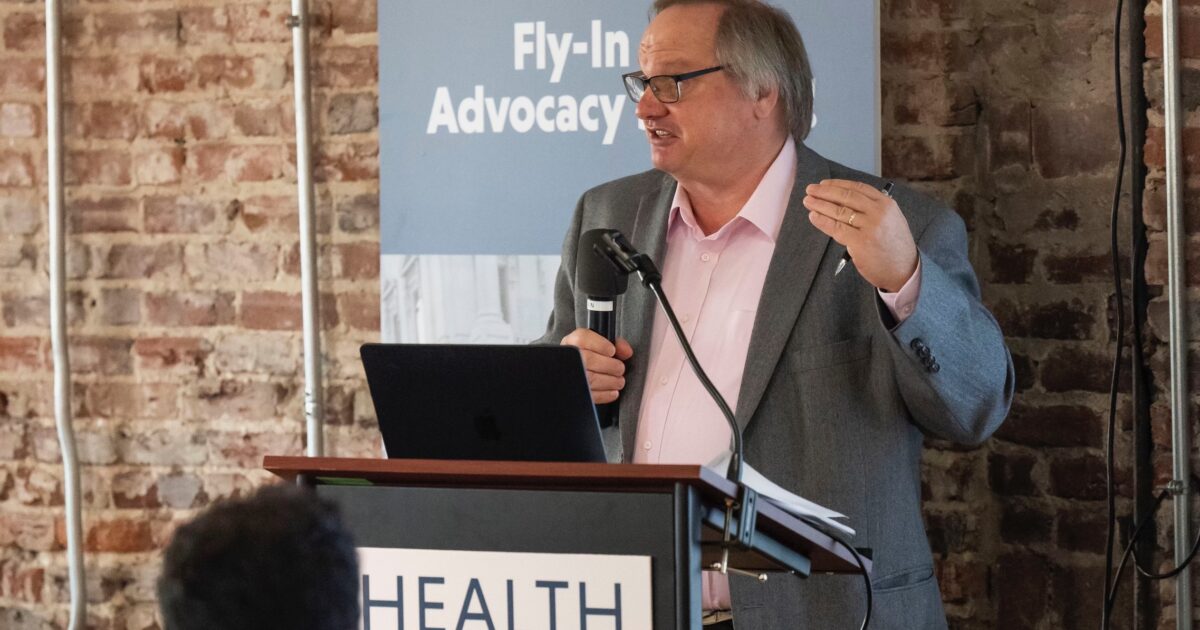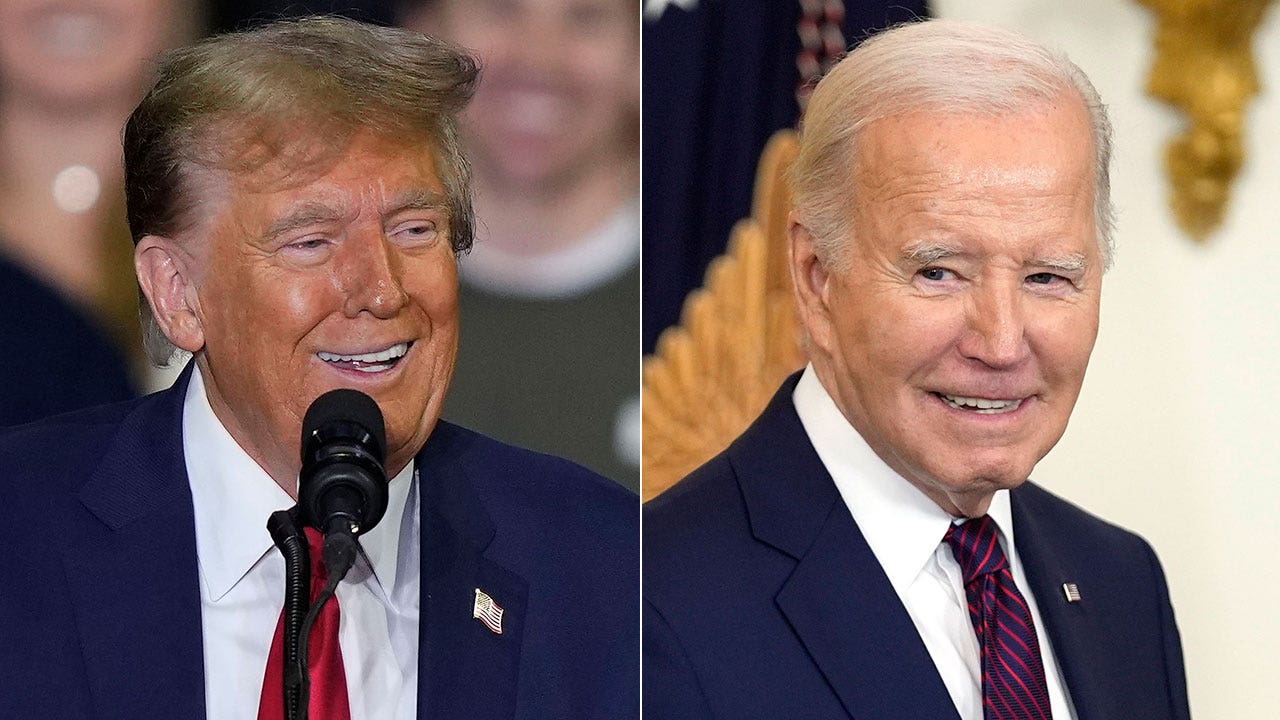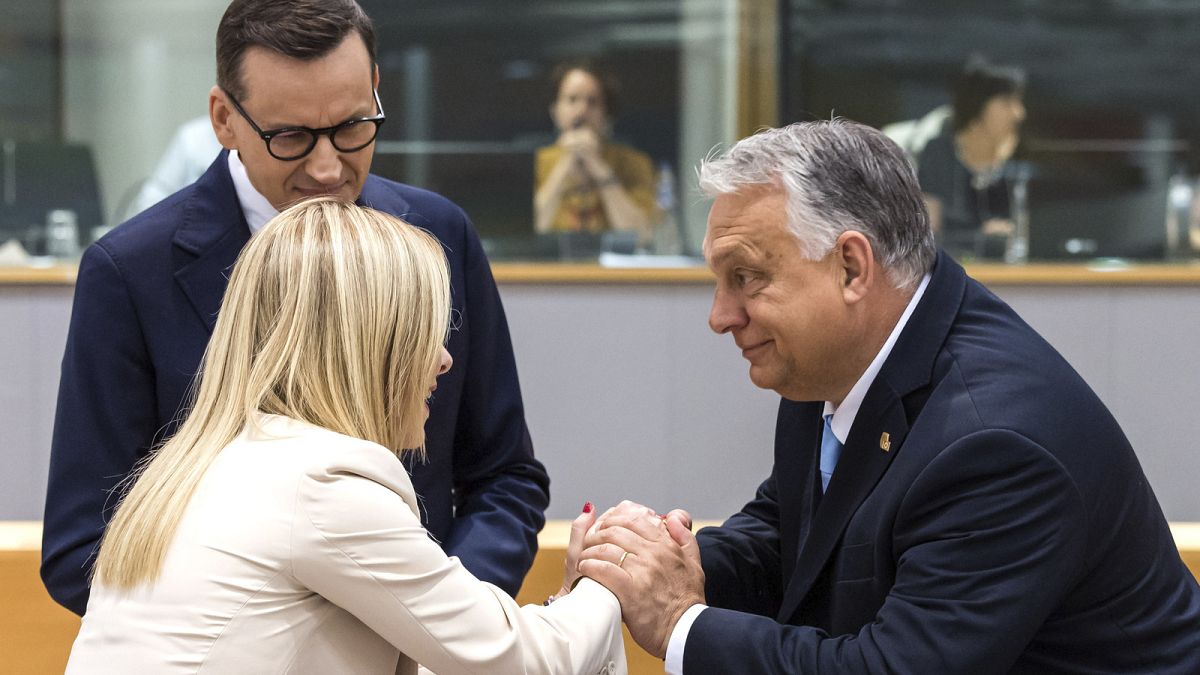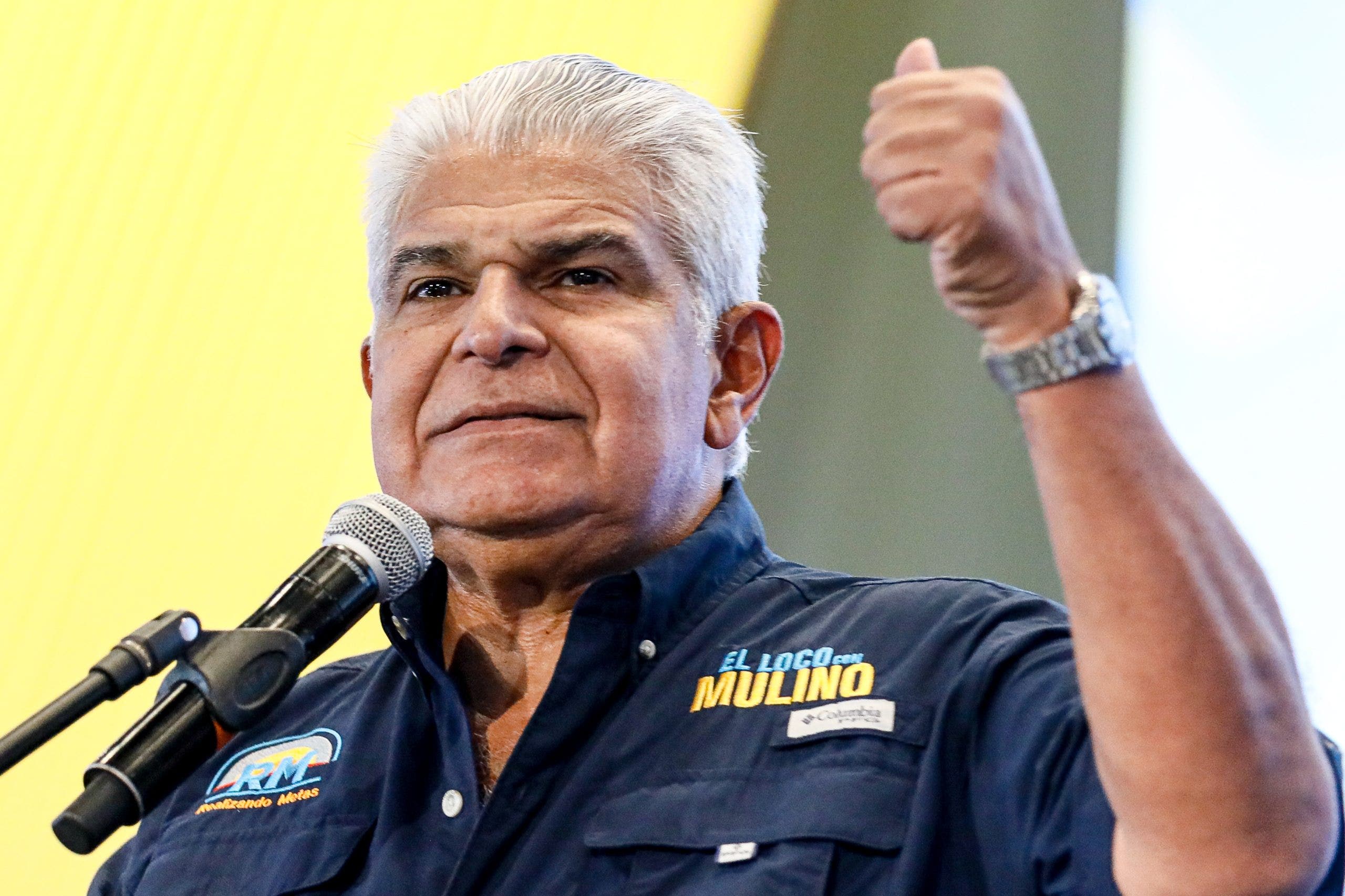Kansas
Kansas Republicans send flat tax bill to Laura Kelly for likely veto. Can they override it?
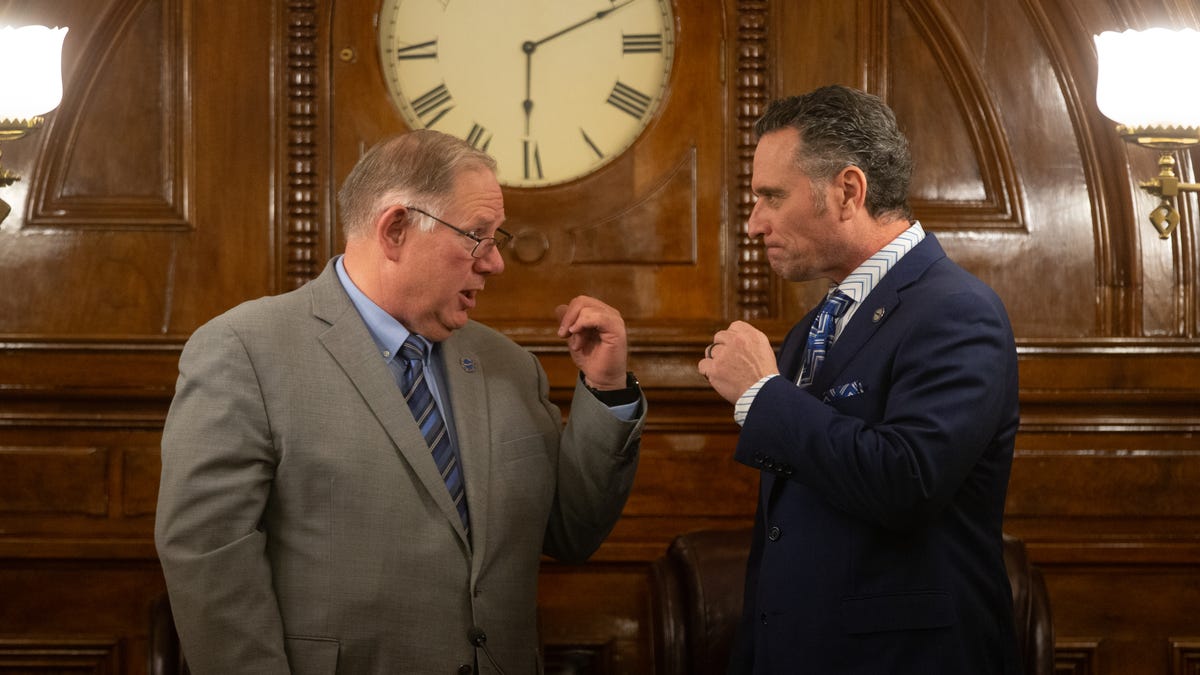
Kansas Republicans got to work quickly on tax cuts this session, fast-tracking a package and sending it to the governor before the end of the second week.
But their efforts could be doomed by an expected veto from Democratic Gov. Laura Kelly and a likely inability to override that veto.
Republicans gutted House Bill 2284 in a conference committee and inserted in several tax policies, the biggest of which is a 5.25% single rate income tax, also known as a flat tax. That provision accounts for $706.6 million of the $1.59 billion in tax cuts over the next three fiscal years.
Kelly has vowed to never sign a flat tax into law, meaning the bundling of other income, property and sales tax relief could all be lost.
Who benefits from the tax plan?
Democrats argued that the flat tax amounts to a redistribution of wealth back to the highest earners, and that middle-income people would gain the least from the proposed changes to the tax code.
Rep. Adam Smith, R-Weskan, didn’t dispute that higher earners will get more, but said that it’s proportional to what is put in.
“I would argue that a single rate tax policy is fair,” Smith said. “It treats everyone proportionately. If you make twice as much income, you pay twice as much tax.”
He also pointed to the hundreds of thousands of Kansans who wouldn’t pay any tax with the removal of a “cliff,” referring to a threshold at which all wages would be subject to a certain tax rate. The plan that passed wouldn’t tax income under the $6,150 threshold for individuals or $12,300 for couples.
Americans for Prosperity-Kansas has been a major proponent of the flat tax, promoting it with a statewide campaign keynoted by Senate President Ty Masterson, R-Andover, and House Speaker Dan Hawkins, R-Wichita.
In a sponsored Facebook post paid for by Americans for Prosperity, AFP-Kansas said “switching to a single-rate tax system means an extra $400 in your pocket yearly.”
Past Kansas Department of Revenue estimates show $400 in annual savings don’t kick in under a 5.25% flat tax until around when individuals earn $125,000 or more, childless couples earn $175,000 or more and couples with two kids earn $175,000 or more.
The outlook for people earning a more typical Kansas wage is less optimistic.
Though every earner in Kansas is due for a cut, Rep. Tom Sawyer, D-Wichita, said more than half of the $260 million in tax relief Kansans will receive will go to the 48,000 filers earning more than $250,000. About $40 million in income relief from the tax cuts will go to out-of-state residents.
“The people making between $50,000 and $100,000 get $20 million out of the $300 million,” Sawyer said. “That’s the big middle, the people in Kansas that work hard and pay their taxes. There are 300,000 people in that group.”
Sen. Alicia Straub, R-Ellinwood, raised similar concerns in a Senate GOP caucus as she held up a graph on effective tax rate that was prepared by nonpartisan legislative staff.
“I’m just showing where the effect of this tax rate reduction, who it benefits the most,” Straub said, pointing to where the chart showed middle income earners would see nearly no benefit but higher and lower income earners see more benefit.
“That’s where the benefit actually of the single rate starts to take effect, is if you have an adjusted gross income of $70,000 to $80,000 or higher,” she said. “Otherwise … if you’re making between $40,000 and let’s just say $75,000, you’re essentially paying the same amount in income tax next year if this were to take effect.”
Sen. Caryn Tyson, R-Parker, acknowledged that “yes, there is a middle income that the effective tax rate is like tenths of a percent difference between this and current policy.” But she argued that such people would get the benefit of other pieces of the tax plan, including an inflation index for the standard deduction and personal exemption.
“The bottom line is … this is a tax cut for everyone,” she said. “I would hate to go home to my constituency and say I did not support this.”
Tyson reminded her colleagues that popular tax cuts like the property and sales tax pieces would be lost if the bill does not pass.
“You can look at just one target of this and pick on that part of the bill, but the overall bill is great policy for the average Kansas family,” she said.
People with middle incomes could benefit from other provisions in the bill.
Tying the standard deductions to the Consumer Price Index will guard Kansans from their standard deductions losing value, but will keep rates at pace with adjusted real dollars. And Kansans who have at least one dependent would see an additional $50 plus inflation adjustments in tax exemptions per dependent due to the bill.
Seniors who make over $75,000 in income will no longer have to pay income tax on their Social Security benefits.
Residential property owners will see their state property tax exemptions more than double from just over $42,000 to $100,000.
All Kansans would see their spending on groceries reduced with the final axing of the state sales tax on food that would start in April 1, rather than the currently scheduled Jan. 1, 2025.
Kansas budget would hit a deficit after five years of Republican tax plan
Kelly has said she wants tax cuts to be both “fiscally responsible” and “sustainable.”
Democrats have framed the Republican proposal as a return to Brownback-era instability. Republicans, however, maintain that the cuts are feasible.
“This is completely sustainable, we’ve got billions of dollars and a rainy day fund, and it pencils out,” Masterson said. “There’s absolutely no reason not to return these resources to the people we serve.”
Projections from the Kansas Division of the Budget suggest otherwise.
Under the budget division’s projections, HB 2284 would cut into the state general fund balance more than the governor’s tax plan.
“This is good policy; it is a bigger tax savings than the governor’s,” Tyson said.
By fiscal year 2027, the budget would no longer comply with a state law requiring a minimum ending balance, according to the Division of the Budget. By fiscal year 2029, the general fund would see a $514.6 million deficit.
More: A $15 minimum wage for state employees? Here’s what to know about Kansas budget proposals
Republicans don’t have a supermajority at this point
The Senate voted 25-11 on Wednesday on HB 2284. A supermajority is 27 votes out of 40 senators.
The House voted 81-37 on Thursday. A supermajority is 84 of 125 representatives.
The Senate is where Republicans have a problem.
More: Kansas Republicans are fast-tracking tax cuts, despite not having veto-proof majorities
Sens. Rob Olson, R-Olathe, and Dennis Pyle, a conservative independent from Hiawatha, both voted “no.” Absent was Sen. John Doll, R-Garden City, who has previously voted against a flat tax.
Republicans would need one of them to flip-flop while not losing the support of Sens. Straub and Carolyn McGinn, R-Sedgwick. Both voted “yes” this time around, but have previously waivered in their support.
While the House fell short of 84 “yes” votes on the bill, Republicans were missing four absent representatives who have previously voted in favor of a flat tax. As long as at least three of those four show up for a veto override and no one else flip-flops, House Republicans have a supermajority.
Rep. David Younger, R-Ulysses, was the only Republican to side with Democrats. Rep. Marvin Robinson, D-Kansas City, was the only Democrat to side with Republicans. Robinson has a track record of siding with Republicans on controversial votes, including veto overrides.
Will Republicans claim compromise or take credit?
Republicans have claimed that their tax package is a compromise with the governor and that the Kelly’s proposal was comprised of Republican ideas.
“Social Security (relief) has been around for a long time, property tax relief was in our bills we’re just arguing about the levels of it, those are all ideas that have percolated through the Republican Party,” Masterson said after Kelly’s State of the State speech.
Masterson and Hawkins have both referred to it as “our compromise plan” and said they “are hopeful the governor will meet us in the middle,” despite Kelly promising to never sign a flat tax into law.
Kelly has been sharing a similar message on her package of tax cuts, often touting that it is bipartisan. Olson and Pyle signed onto the governor’s proposal and voted against the Republican plan. Doll also co-sponsored Kelly’s plan but was absent during the vote on Wednesday.
Sen. Jeff Longbine, R-Emporia, asked how Republicans should be messaging to constituents on the bill.
“It is an election year, and it is really, really hard to outmessage the governor,” he said.
More: Here’s how $1M fundraising haul of Laura Kelly’s PAC could break supermajority in Kansas
Masterson said the message should include that the plan is a “compromise,” because many of the pieces are ones Kelly has publicly supported.
“We gave her a lot of stuff in this legislation,” Tyson said of the governor.
But some Republicans also want to take credit for it all.
“For the record, all these ideas came from this Legislature,” said Sen. Chase Blasi, R-Wichita. “It wasn’t Laura Kelly’s. None of these ideas are Laura Kelly’s. Property tax cuts, food sales tax, child care tax cuts, they’re all Republican policies.”
Legislative process was criticized
Republicans fast-tracked the bill, setting the Legislature up for atypical early session floor debates on final action on substantive policy. The bill passed through a conference committee, which doesn’t allow legislators to amend the text and limits terms of debate of the floor.
It also meant there were no committee meetings where the public could comment.
Pyle raised concern at the process, calling it a “gotcha bill” and likening it to leading sheep to slaughter.
“I wish I could propose today to motion to suspend the rules then divide this conference committee report and vote on it individually. That’s part of the problem, it’s put into a conference committee report for a reason,” Pyle said.
Sen. Marci Francisco, D-Lawrence, said she that she supports some of the proposals in the bill, but is troubled by the inability to amend the text and that it leaves no time to gauge how her constituents feel about it. Tyson defended the process by saying many of the ideas have been pushed around the Legislature for several years.
What’s in the tax cut plan
- A 5.25% flat tax on all earnings over $6,150 for individuals or $12,300 for married couples.
- Indexing the standard deduction to increase with inflation.
- An additional $50 to the $2,250 personal exemption tax credit per dependent plus an inflation index.
- Eliminating income taxes on Social Security benefits.
- Exempting the first $100,000 from state property taxes.
- Ending all state sales tax on food in July rather than January.
- Cutting the privilege tax on banking and financial institutions.

Kansas
Kansas City to Grandview public bus route no longer offered

KANSAS CITY, Mo. (KCTV) – The public will no longer have an option to take a public bus from Grandview to Kansas City, Mo.
Beginning Monday, May 13, the 29 Blue Ridge Limited Bus Route will end at Holiday Drive and Blue Ridge Boulevard instead of continuing on into Grandview.
According to the Kansas City Area Transportation Authority, Grandview leaders terminated its agreement for bus service.
Members of the Grandview Board of Aldermen discussed the number of people who actually used the route while trying to determine if the cost for the service justified keeping it during a meeting on April 23.
ALSO READ: Man gets boat painted on fence that city made him put up to hide it
The route has been an option for people living in Grandview since April 2019, when KCATA expanded service. At that point the route included stops on Main Street at City Hall, the Mid-Continent Public Library-Grandview, and Truman’s Marketplace.
The limited service provided early morning and late afternoon service Monday through Friday.
Additional information about the KCATA, and the routes and services it provides, is available online at ridekc.org.
Copyright 2024 KCTV. All rights reserved.
Kansas
Police found fentanyl and cocaine at Kansas home

SHAWNEE COUNTY—Law enforcement authorities are investigating three suspects on drug and additional allegations.
On May 8, members of the Topeka Police Department Narcotics Unit served a search warrant in the 3100 Block SE Dupont Street in Topeka related to an ongoing investigation.
While conducting the search warrant, officer’s located fentanyl, cocaine, methamphetamine, marijuana, drug paraphernalia and firearms.
As a result police arrested 48-year-old Rae Conley, 58-year-old Robert Hayes and 34-year-old and Gracie Preston, 34, according to Police Lt. Ronnie Connell.

Rae Conley is being held on requested charges of Distribution of Certain Stimulants, Possession of Drug Paraphernalia with intent and Aggravate Child Endangerment
Robert Hayes is being held on requested charges of, Distribution of Certain Stimulants, Distribution of Certain Hallucinogenic, Unlawful to acquire proceeds from drug transaction, Drug Tax Violation and Possession of Drug Paraphernalia with intent

Gracie Preston is held on an Arrest Warrant
Kansas
Kansas City wants big federal money for sustainability projects, but it faces tough competition

Kansas City is dreaming big with visions of massive federal support for making the city greener than it’s been since wagon trains rumbled through these parts.
Last month, area governments submitted a request for nearly $200 million in sustainability funds with the U.S. Environmental Protection Agency (EPA).
Officials said they knew the effort would be epic in scale. The application included everything from bike trails to Civil War era settlements, subsidized e-bike sales, massive tree plantings and solar panels atop inner-city libraries.
Now, after grant requests from across America have landed at the EPA, it turns out the competition for the funds will be stiff.
Zealan Hoover, senior adviser to EPA Administrator Michael Regan, last week said, “We received $30 billion in proposals.”
That figure swamps the $4.6 billion the EPA will dole out to be spent over five years by cities, states and tribes on a wide variety of programs designed to cut carbon dioxide emissions and slow climate change and its devastating consequences.
The program is a result of the Inflation Reduction Act, which along with the Bipartisan Infrastructure Act of the Biden administration, was approved by Congress to help counter the lingering drag on our economy from the COVID pandemic and boost employment.
In an interview, Hoover told the U.S. Department of Energy’s Grid Talk podcast: “We will be funding the best of the best. It is unlikely everyone will be selected.”
Local government representatives who worked on the Kansas City area submission remain upbeat as they await EPA action promised in July.
Tom Jacobs, the chief resiliency officer at the Mid-America Regional Council (MARC), said, “If EPA elected to make a partial award, we would be thrilled to receive any resources they though appropriate.”
Jacobs and his team spent months working with 119 cities in nine counties in Missouri and Kansas represented by MARC. Collectively, they came up with $197,823,216 of funding requests for 40 projects. The projects were an outgrowth of a Priority Climate Action Plan, which can be viewed at kcmetroclimateplan.org.
The plan’s principal goals are to leverage public leadership, achieve neighborhood resilience and critical infrastructure resilience.
“We believe we have $200 million in outstanding projects,” Jacobs said.
He said he had no way of knowing if the fierce competition for funding from around the nation means Kansas City can expect to receive all its requested funding, partial funding or no funding.
“I don’t have any idea how they are going to implement it,” Jacobs said. But according to grant criteria, “they said they would not evaluate line item by line item but by a whole body of work.”
The grant requests from the Kansas City region submitted to EPA were an outgrowth of “our exhaustive community conversation,” he said.
Any revisions of plans prompted by EPA’s decisions would result in an effort to fine-tune the area’s requests.
“I would go back to the community to see what game plan they would like,” he said. “We laid out a program of interconnected parts so each investment would be supportive of other investments. We would apply that philosophy to any revisions we make.”
“I want to be able to tell a story of how one investment connects to the next to make visible change in the community,” Jacobs said.
Realistic expectations
Hoover of EPA said that the federal government expects just that.
“Even if every applicant is not selected the benefits will be felt across the country,” he told Grid Talk. “I’m really confident that there are going to be fantastic climate pollution reduction grants … all across the country.”
“We’ve received over $30 billion dollars in project proposals so we will be funding the best of the best,” he continued. “We’re seeing really innovative proposals that are tailored to the needs of local communities and states.”
In Kansas City, that could be boosts to commercial food waste composting; planting of indigenous plants, shrubs and trees to enhance area bird and wildlife; construction of electric vehicle charging in areas of the city lacking such critical 21st century energy infrastructure; and tons of caulking and energy efficiency upgrades of the oldest, leakiest housing stock in the area.
Such efforts, collectively, are expected to slash greenhouse gas emissions by 5.45 million tons over 25 years.
All of it will fall under the umbrella descriptor: “Kansas City – Anchoring Climate Transformation.”
This story was originally published by Flatland, a fellow member of the KC Media Collective.
-

 Education1 week ago
Education1 week agoVideo: President Biden Addresses Campus Protests
-

 Movie Reviews1 week ago
Movie Reviews1 week agoSabari Movie Review: Varalaxmi Proves She Can Do Female Centric Roles
-

 World1 week ago
World1 week agoBrussels, my love? Champage cracked open to celebrate the Big Bang
-

 Politics1 week ago
Politics1 week agoAustralian lawmakers send letter urging Biden to drop case against Julian Assange on World Press Freedom Day
-
News1 week ago
A group of Republicans has united to defend the legitimacy of US elections and those who run them
-

 Politics7 days ago
Politics7 days agoHouse Dems seeking re-election seemingly reverse course, call on Biden to 'bring order to the southern border'
-

 News1 week ago
News1 week agoVideo: Tanker Fire Shuts Down I-95
-

 World1 week ago
World1 week ago‘It’s going to be worse’: Brazil braces for more pain amid record flooding
